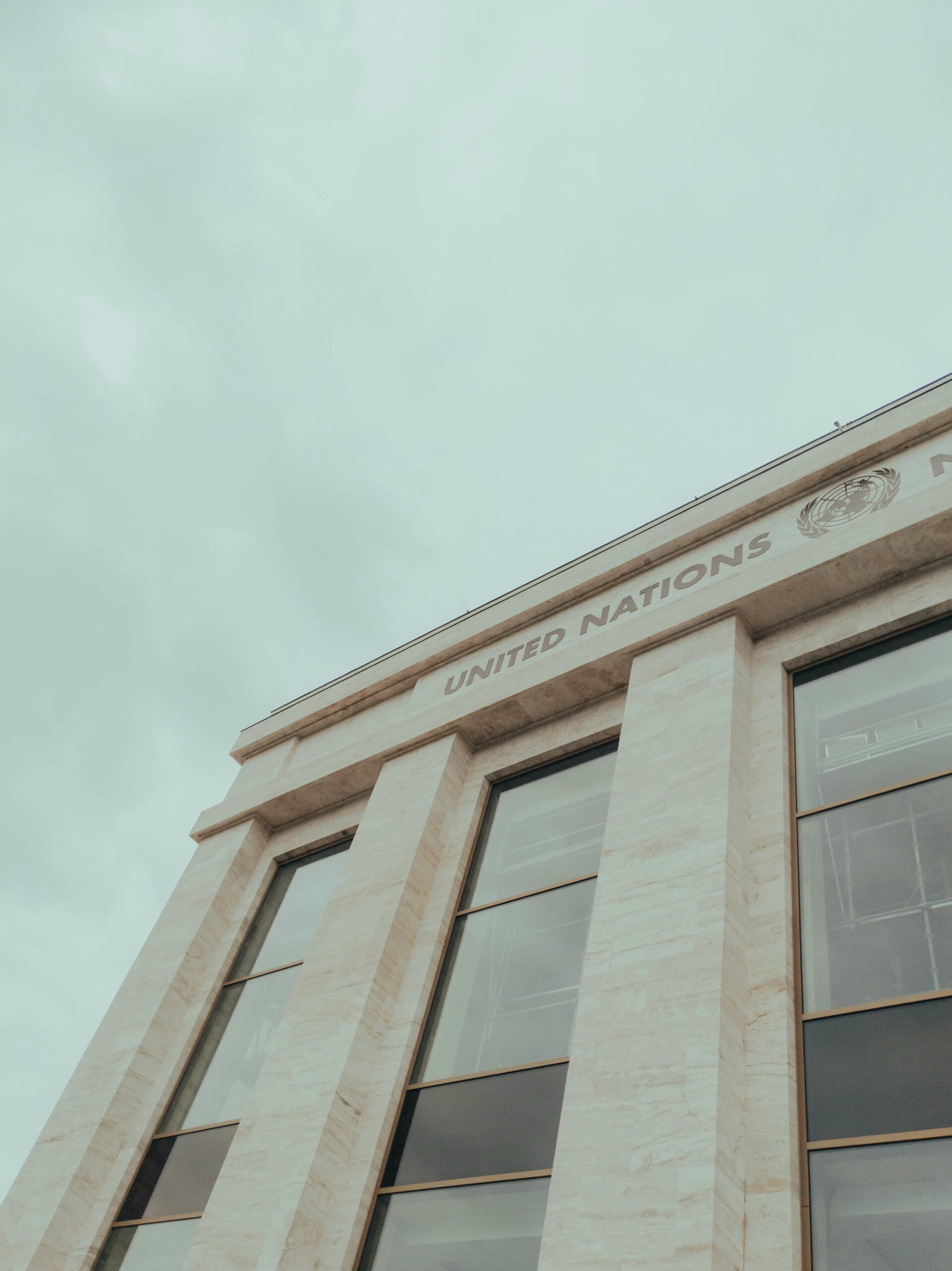Charting a safer, more interdependent, and inclusive future in the ruins of liberal institutionalism
Hansdeep Singh, ICAAD Co-Founder and Legal Innovator, leverages rigorous multidisciplinary research to support local justice initiatives and build evidence-based frameworks for advocacy and systemic change. His extensive experience includes work with Human Rights Watch, the International Criminal Tribunals for Rwanda and the former Yugoslavia, and community-based organizations addressing post-9/11 civil rights. This diverse background enriches his perspective on the intersection of legal institutions and justice, emphasizing the lived experiences of affected communities.

After World War II, the United Nations Security Council (UNSC) was created to maintain international peace and security. The Allied forces that helped to secure victory over the Axis powers became the permanent members of the UNSC, also known as the P5 (United States, United Kingdom, France, Russia, and China). Not only do the P5 members have permanent positions within the UNSC, but they also have a decisive veto power to block any UNSC resolutions that are not within their national interests. The design of the UNSC was flawed from its inception. Rather than permanence, the P5 should have functioned as temporary scaffolding to ensure a more equitable and safer global realignment; instead, the P5 have worked over the last 70+ years to consolidate and solidify the very power of authoritarianism, repression, and crimes against humanity that they vehemently opposed during WWII.
The full panoply of rights offered by international law cannot be operationalized if beholden to the P5. Post-WWII, as arbiters of international peace and security, the P5 have instead fostered global instability and stifled international human rights law (IHRL) mechanisms to effectively protect civilians by limiting their own accountability. Notable examples include: 1) Russia and China using their veto power for over a decade to immunize the Syrian government, which has allowed a Civil War to consume over 600,000 lives while displacing more than 13 million people; 2) U.S. laying the path for pursuing a war of aggression in Iraq despite violating the U.N. Charter; 3) Russia vetoing resolutions calling out its unlawful annexation of Ukraine; and 4) UK, France, and U.S. voting against, abstaining from, or vetoing resolutions critical of the Israeli government’s treatment of Palestinians.
In the United Nations General Assembly (GA), each of the 193 UN Member states has a vote. Despite the GA’s role in international peace and security, its resolutions are non-binding, suffering from the same limitations as IHRL’s lack of enforcement and accountability. This battle for implementing IHRL has been continuous over the last 70+ years buoyed by moments of progress and hope. However, incremental progressive victories are no longer sufficient when it masks how the very fabric of IHRL has repeatedly come apart at the seams. Liberal institutionalism’s ideals of international cooperation and collective safety are undermined by the P5s veto power and permanent position, which grant it global supremacy over other nation-states.
We are rapidly moving into a world where coordinated responses to the global risks of: AI and quelling misinformation; climate change and preventing mass displacement; extractivism and ending neo-colonialism will be vital to the protection of human rights and global security. However, the Global South, who will bear the most significant impact from these risks and currently occupy the majority of the UN’s peacekeeping operations, are usually erased from these discussions, which undermines the UNSC’s legitimacy and effectiveness. Adherence to a political body, UNSC, that continues to fail humanity, demands radical reform. Some proposed reforms include:
- Removal of Veto Power: Replacing the veto with supermajority voting to prevent any single country from unilaterally blocking resolutions.
- Rotating Membership: Eliminating permanent seats in favor of rotating memberships based on contributions to international peace and adherence to IHRL.
- Enhanced Representation: Ensuring regional representation within the UNSC to include voices from every region globally.
- Criteria for Membership: Gauging potential member states’ commitment to human rights, international cooperation, and contributions to peacekeeping as prerequisites for UNSC membership.
Each idea represents an amalgam of proposed reforms, yet, no specific reform is sufficient to address the inherent inequity within the UNSC. Only a combination of these ideas may be sufficient to provide a baseline to achieve systemic balance within the UNSC system. However, one major barrier to any reform remains the P5. There has been a working group within the GA that has been working for three decades to have more equitable representation on the Council with no result. Nevertheless, there are movements within the African Union (AU) and Group of Four nations (G4) (Brazil, Germany, India, and Japan) to expand representation in the UNSC, including expanding the number of permanent seats if the UNSC does not eliminate permanent seats altogether. If the P5 Global North members continue to deny equal representation to Global South members by continuing to undermine calls for reform, Global South members may need to consider the creation of new mechanisms within the UN that blunt the UNSC’s current power structure.
UN mechanisms must reflect the equity it expects all member states to implement internally. The aspirations of liberal institutionalism can only be achieved through cooperation and interdependence that does not rely on supremacy or exceptionalism as a necessary component of international peace and security. This new conception of liberal institutionalism must serve as a counterpoint to offensive realism, which centers “power” as a means of ensuring state survival. If we are all to prosper, a movement to a more integrated global society underpinned by common security is fundamental.
